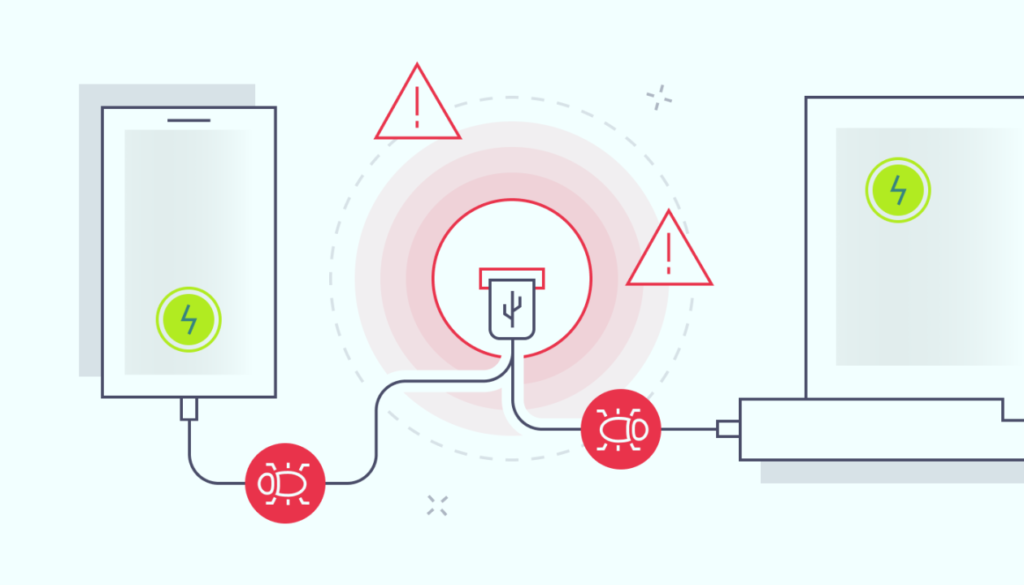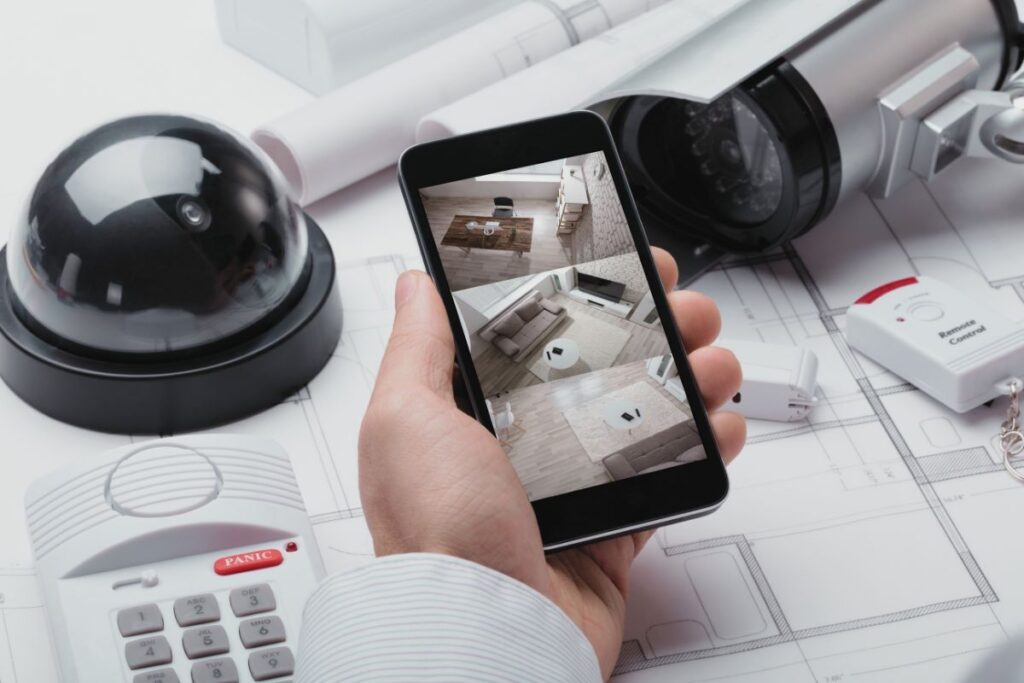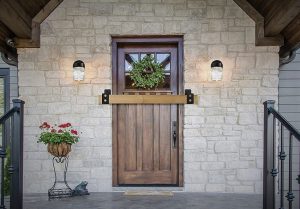
In today’s world, keeping your home safe and secure is a top priority. The good news is, that technological advancements are constantly offering new ways to deter criminals and give you peace of mind. However, with so many options on the market, it can be tricky to discern the truly effective trends from the mere hype. This article will delve into the latest home security trends, helping you separate the fortresses from the faux pas.
The Rise of Smart Home Security
Smart home security systems are undoubtedly one of the biggest trends in recent years. These systems leverage internet-connected devices and apps to provide homeowners with remote access and control over their security measures.
Here’s a breakdown of some key components of smart home security systems:
-
Smart Locks and Doorbells: Control who enters your home remotely, receive notifications when someone unlocks the door, and even see who’s at your doorstep through integrated video cameras.
-
Smart Cameras: Keep an eye on your property from anywhere with Wi-Fi-enabled cameras. Some offer motion detection, night vision, and two-way audio communication, allowing you to interact with visitors remotely.
-
Smart Sensors: Motion sensors, water leak sensors, and smoke detectors can alert you to potential threats, even when you’re away.
-
Smart Lighting: Control your home’s lighting remotely, creating the illusion of occupancy even when you’re not there.
Benefits of Smart Home Security
-
Convenience: Remote access and control offer the ultimate convenience, allowing you to monitor your home and manage security features from anywhere.
-
Enhanced Security: The interconnected nature of smart systems creates a layered defense, deterring potential intruders and providing real-time alerts.
-
Potential Cost Savings: Smart home systems can lead to lower insurance premiums and potentially reduce energy consumption.
-
Peace of Mind: Knowing you can monitor your home remotely provides invaluable peace of mind.
Considerations for Smart Home Security
-
Security Risks: Like any internet-connected device, smart home systems are vulnerable to hacking. Choose systems with robust security features and encryption protocols.
-
Privacy Concerns: Video cameras and other sensors raise privacy concerns. Be mindful of where you place cameras and ensure your system adheres to data privacy regulations.
-
False Alarms: Smart sensors, particularly motion detectors, can be prone to false alarms. Proper configuration and choosing pet-immune sensors can minimize this issue.
-
Integration Challenges: Not all smart home devices are compatible with each other. Opt for systems with open architecture or consider using a central hub to ensure seamless integration.
Beyond Smart Homes: Emerging Security Trends
While smart home security dominates the conversation, other innovative trends are making waves:
-
Biometric Authentication: Fingerprint scanners, facial recognition, and iris scanners add an extra layer of security by using unique biological identifiers to access your home.
-
Voice-Controlled Security Systems: Imagine controlling your locks or activating alarms with simple voice commands. This hands-free approach offers convenience and accessibility.
-
DIY Security Solutions: DIY security systems offer a cost-effective alternative to professional monitoring. However, ensure the system is reliable and user-friendly for self-installation.
-
Focus on Privacy: As privacy concerns rise, expect to see security systems that prioritize user control over data collection and storage practices.
Making Informed Choices for Your Home Security
The ideal home security system depends on your individual needs and budget. Here are some tips to consider:
-
Conduct a Security Assessment: Identify potential vulnerabilities in your home and prioritize the security measures that address them.
-
Consider Your Lifestyle: Do you travel frequently? Need remote access? Evaluate your needs to determine the features most valuable to you.
-
Research and Compare: Don’t jump on the first flashy system. Research different options, compare features, and read reviews before making a choice.
-
Prioritize User-Friendliness: Choose a system that’s easy to install, operate, and maintain. A complex system you can’t use effectively defeats the purpose.
-
Consult a Security Professional: A professional can assess your specific needs and recommend the most appropriate security solutions.
Remember: Security is an ongoing process. Regularly evaluate your system’s effectiveness, update software, and stay informed about new threats and emerging technologies.
The Future of Home Security
The future of home security is brimming with potential. Expect to see:
-
Artificial Intelligence (AI): AI-powered systems will learn your routines, identify anomalies, and proactively respond to potential threats.
-
Advanced Automation: Security systems will seamlessly integrate with other smart home devices, creating a truly automated and intelligent security ecosystem.
-
Cybersecurity Enhancements: As technology advances, so will cyber threats. Expect to see robust security protocols and encryption measures becoming the norm for all home security systems.
-
Focus on Personalization: Security systems will become more customizable, allowing homeowners to tailor their security measures to their specific needs and preferences.

Home Security: Beyond Technology
While technology plays a crucial role, a holistic approach to home security goes beyond gadgets and apps. Here are some additional security measures to consider:
-
Strong Doors and Locks: Invest in a sturdy deadbolt lock and reinforce your door frame for added security.
-
Proper Lighting: Well-lit entryways and walkways deter potential intruders. Consider motion-activated lights for additional security.
-
Visible Security Measures: Security signs, window decals, and even security cameras themselves can act as deterrents.
-
Neighborhood Watch Programs: Building relationships with neighbors and fostering a sense of community can significantly enhance home security.
Related: How to Barricade a Door at Home
Conclusion
The latest home security trends offer exciting possibilities for creating a safe and secure home environment. By understanding the benefits and limitations of smart technology, exploring emerging trends, and incorporating traditional security measures, you can create a layered security approach that provides peace of mind. Remember, the most effective security system is one that is tailored to your specific needs and implemented thoughtfully. So, don’t be afraid to explore your options and make informed choices to build a fortress of security, not a faux pas of wasted resources.







